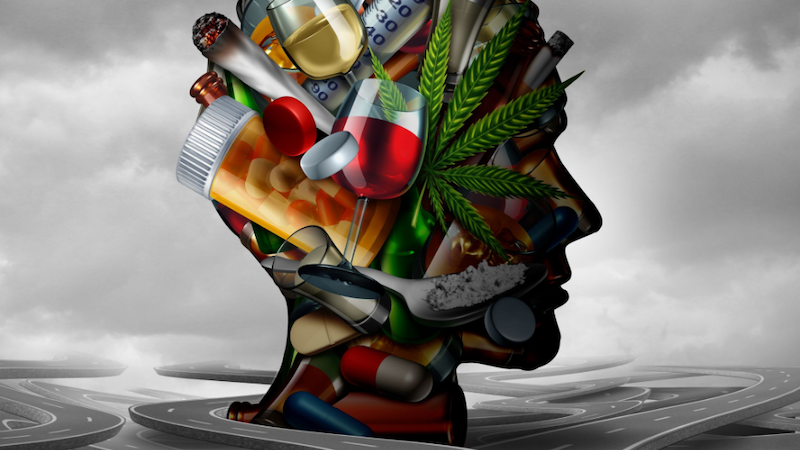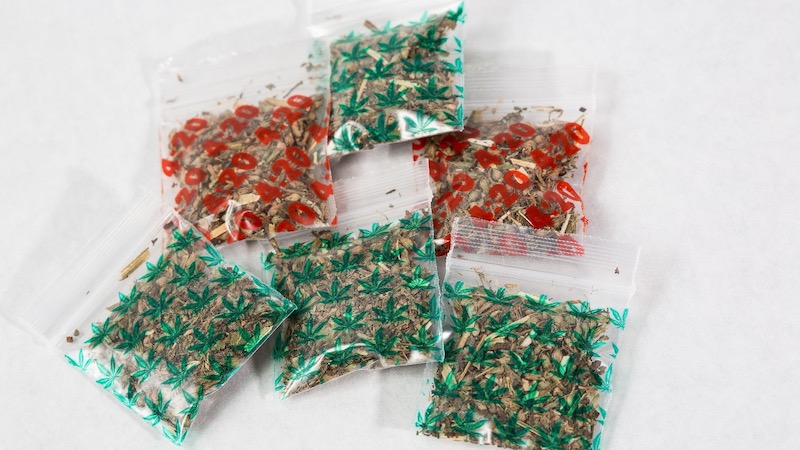
Research
The CFSRE operates in conjunction with recognized leaders from drug testing laboratories and law enforcement agencies with extensive backgrounds in drug impaired driving. This initiative began in 2007 and has evolved over the years to meet the needs of the human performance forensic toxicology community. DUID investigations involving alcohol and other drugs remain a large area of work for forensic toxicologists who are often called upon to deliver and interpret analytical findings in a court of law. However, a toxicologist’s interpretation is often based on the results and conclusions from peer-reviewed literature and publications. Understanding the impact of drug impaired driving in the United States requires 1) advanced analytical research to confirm the substance(s) present in an individual’s system, 2) comparative data from case review in collaboration with drug recognition expert (DRE) evaluations, and 3) surveying of the drug landscape as drug trends and combinations change or evolve.A staple in the CFSRE drug impaired drug research program is our DUID laboratory survey titled “Recommendations for Drug Testing in DUID & Traffic Fatality Investigations.” The survey began in 2007 and is now followed by triennial updates from the CFSRE, the most recent occurring in 2017 and 2020. The structure of the survey is designed to gain insights on policies for testing, most commonly encountered analytes, and technology used for screening and confirmation testing. Additional areas of the survey include responding laboratory statistics, differences between matrix (e.g. blood, urine and oral), compliance with the recommendations, and laboratory resources. The survey results are now used as an effort to provide minimum guidelines for DUID testing in the United States.
Benefits
- Laboratories across the United States are able to participate in our DUID survey and provide input that can shape the direction of DUID testing, which in turn may increase compliance.
- Our survey results provide a minimum guideline for DUID testing in the United States. Monitoring laboratory compliance will increase the strength of the data for DUID testing.
- Improved understanding and training surrounding DRE evaluations, especially for new synthetic drugs, are key to removing impaired drivers from the road and reducing the risk of personal injury or death. Accurate and comprehensive toxicology testing in these DUID investigations is important to determining the drug causing impairment.
- Our laboratory is involved with the development of accurate, sensitive, and robust analytical methods for the quantitation of drugs present in DUID investigations.
Applications
DUID research conducted by the CFSRE includes providing compiled survey results to forensic toxicology laboratories from across the US. Areas of the survey include: toxicology laboratory statistics; laboratory methods for screening and confirmation in blood, urine and oral; compliance with the recommendations; and laboratory resources. The recommendations have been updated every three years since 2013.
Resources
The CFSRE develops informative open-access resources to contribute to the scientific community, including scientific reports or publications and training or educational materials.Publications/Presentations
DUID Laboratory Surveys
- 2024 Publication: Assessing Impaired Driving Through Comprehensive Forensic Toxicology
- 2024 Survey: Updates for Recommendations for Drug Testing in DUID & Traffic Fatality Investigations
- 2021 Recommendations for Toxicological Investigation of Drug-Impaired Driving and Motor Vehicle Fatalities - 2021 Update
- 2020 Survey: Updates for Recommendations for Drug Testing in DUID & Traffic Fatality Investigations
- 2017 Recommendations for Toxicological Investigation of Drug-Impaired Driving and Motor Vehicle Fatalities - 2017 Update
- 2016 Survey: Updates for Recommendations for Drug Testing in DUID & Traffic Fatality Investigations
- 2013 Recommendations and Guidelines: Recommendations for Toxicological Investigation of Drug-Impaired Driving and Motor Vehicle Fatalities
- 2013 Survey: DRE Survey, Toxicology Laboratory Survey, and TSRP Survey
- 2007 Recommendations and Guidelines: Recommendations for Toxicological Investigation of Drug Impaired Driving
Peer-reviewed publications
-
Amanda L D’Orazio, Amanda L.A Mohr, Ayako Chan-Hosokawa, Curt Harper, Marilyn A Huestis, Jennifer F Limoges, Amy K Miles, Colleen E Scarneo, Sarah Kerrigan, Laura J Liddicoat, Karen S Scott, Barry K Logan. Recommendations for Toxicological Investigation of Drug-Impaired Driving and Motor Vehicle Fatalities—2021 Update. Journal of Analytical Toxicology, Volume 45, Issue 6, July 2021, Pages 529–536. https://doi.org/10.1093/jat/bkab064
- Chase PB, Hawkins J, Mosier J, Boesen K, Jimenez E, Logan B, Walter F. Differential physiological and behavioral cues observed in individuals smoking botanical marijuana versus synthetic cannabinoid drugs. Clinical Toxicology 2015; 51(7): 667; https://www.tandfonline.com/doi/full/10.3109/15563650.2015.1101769
- Yeakel JK, Logan BK. Butalbital and Driving Impairment. Journal of Forensic Sciences July 2013; 58(4):941-945; https://onlinelibrary.wiley.com/doi/abs/10.1111/1556-4029.12143
- Yeakel JK, Logan BK. Blood Synthetic Cannabinoid Concentrations in Cases of Suspected Impaired Driving. Journal of Analytical Toxicology 2013; 37(8):547-551; https://academic.oup.com/jat/article/37/8/547/777334
Presentations
- Amanda L. A. Mohr, Judith Rodriguez Salas, Alex J. Krotulski, David Andrascik, Barry K. Logan. The Effects of Synthetic Cannabinoids and Poly-Drug Use on Drug Recognition Expert Evaluations. American Academy of Forensic Sciences. 2020 Annual Meeting. Platform Presentation.
- Amanda L. D’Orazio, Barry K. Logan, Amanda L.A. Mohr, Aya Chan-Hosokawa, Curt Harper, Marilyn A. Huestis, Sarah Kerrigan, Jennifer F. Limoges, Laura J. Liddicoat, Amy Miles, Colleen E. Scarneo, Karen S. Scott. Results from the 2020 Survey for Drug Testing in DUID and Traffic Fatality Investigations. Society of Forensic Toxicologists. 2020 Annual Meeting. Platform Presentation.








